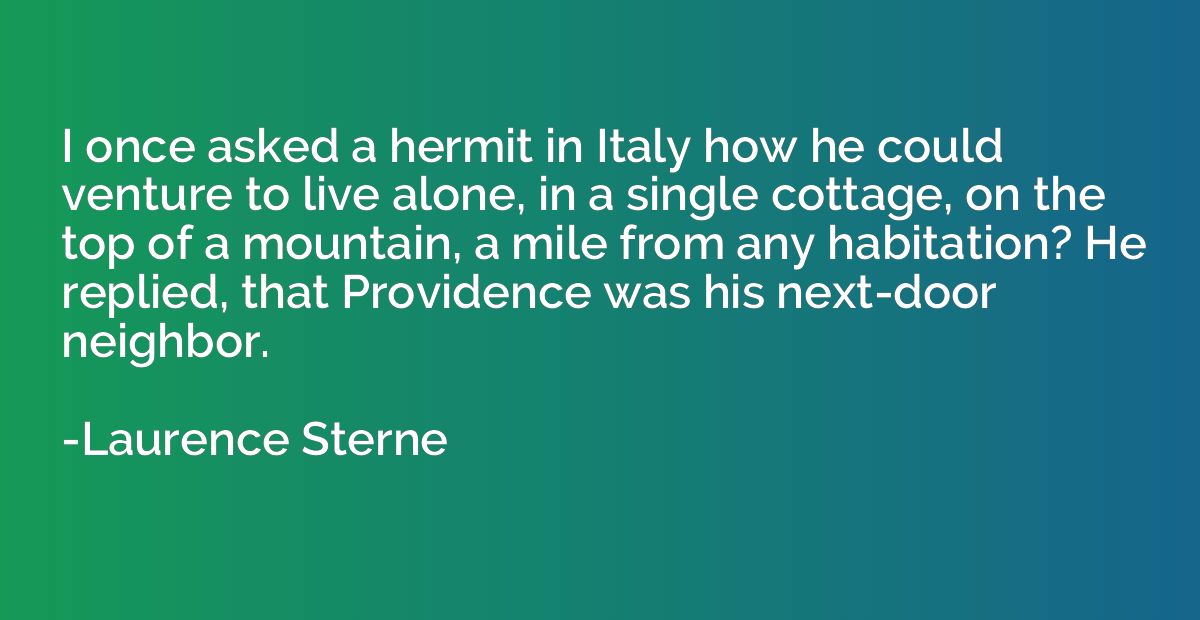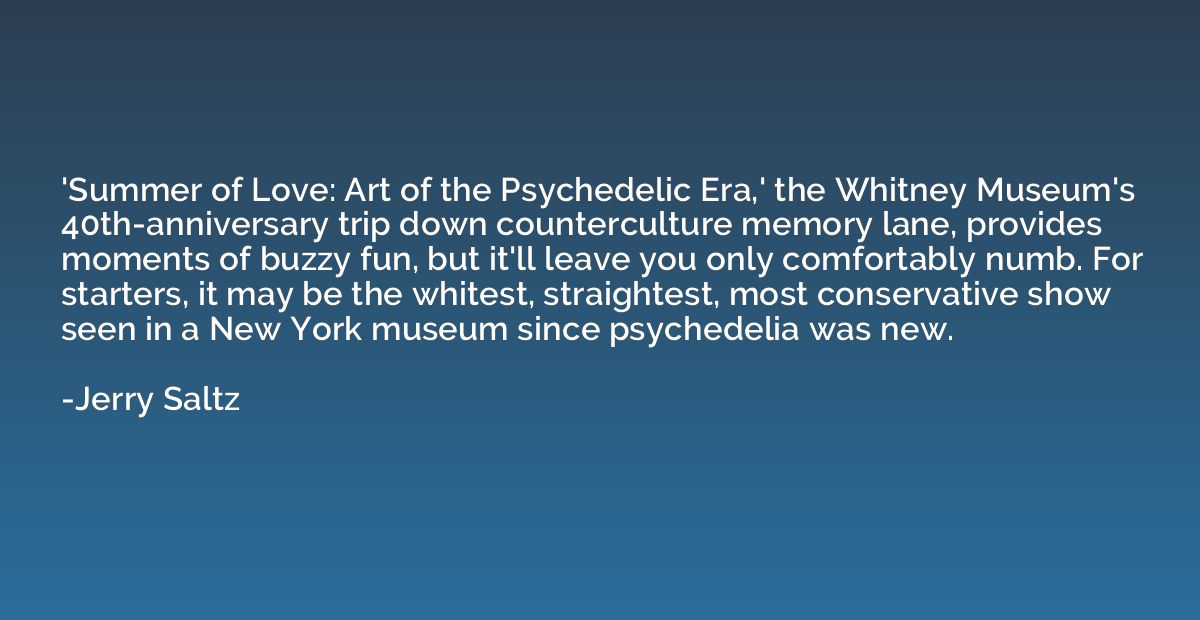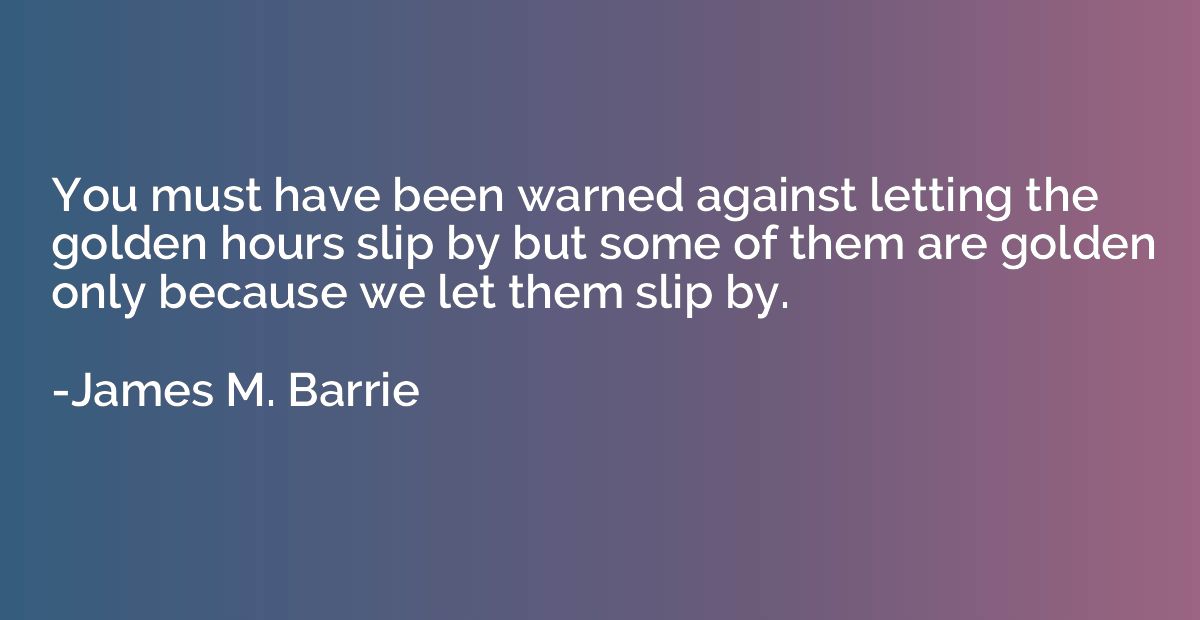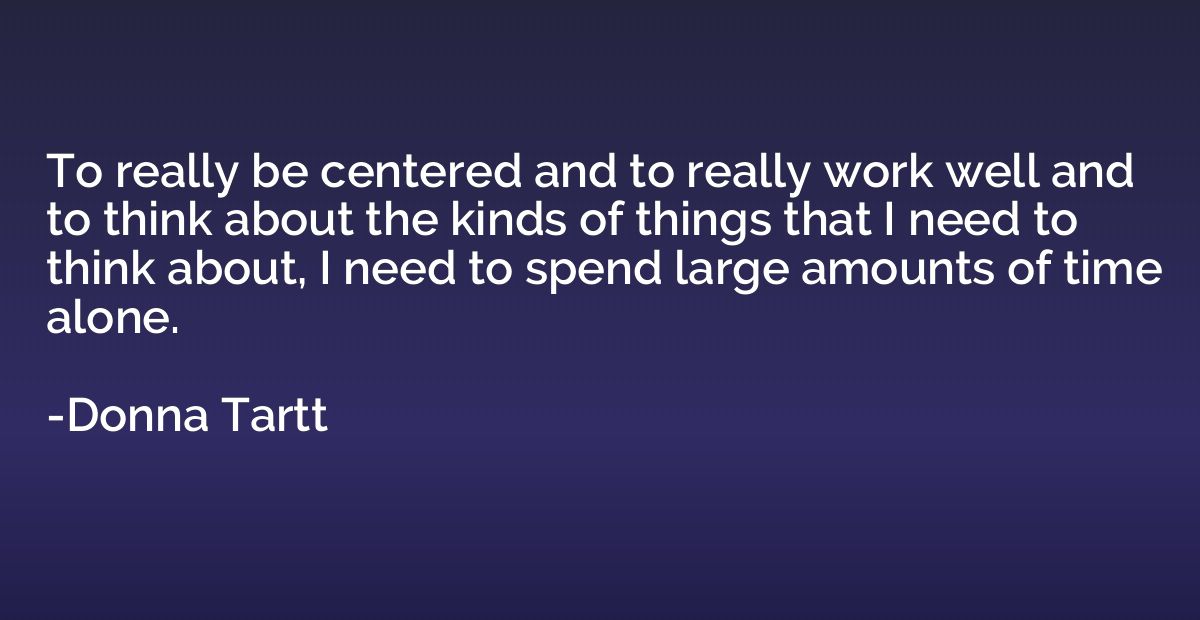Quote by Laurence Sterne
I once asked a hermit in Italy how he could venture to live alone, in a single cottage, on the top of a mountain, a mile from any habitation? He replied, that Providence was his next-door neighbor.

Summary
This quote reflects the perspective of a hermit living in isolation and solitude. When asked about the challenges of living alone in seclusion, the hermit explains that he finds comfort and solace in the belief that Providence, or a divine presence, is always present and looking after him. This implies that his inner spirituality and connection with something greater provide him with the support and companionship he needs, making his solitude bearable and perhaps even enriching. It highlights the power of faith and finding meaning in one's own circumstances.














